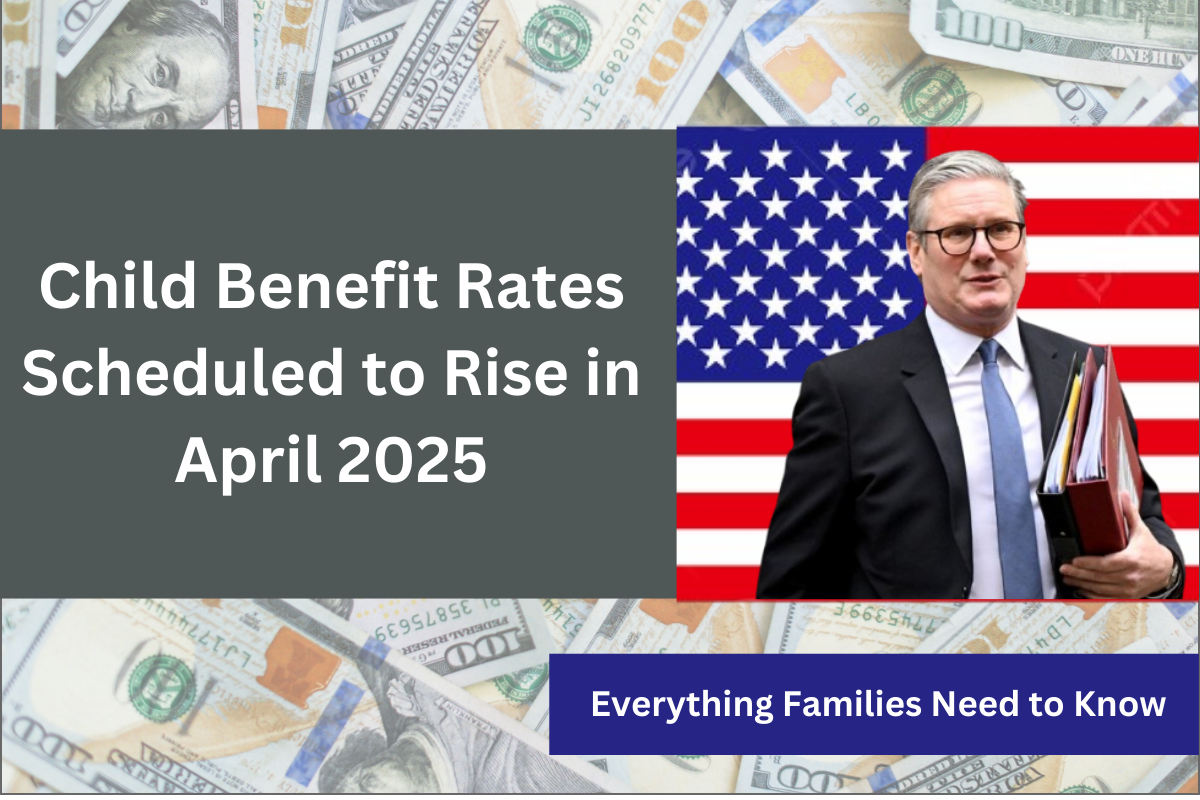Hey there, parents! Exciting news is on the horizon for families across the UK. If you’ve been keeping an eye on your finances or worrying about those ever-increasing bills, you might want to perk up. Child benefit rates are scheduled to rise in April 2025, and it’s definitely something to celebrate. So, what does this mean for you and your family? Let’s break it down and explore everything you need to know about the forthcoming changes in child benefit rates.
Understanding Child Benefit
Child benefit is a payment made by the government to help parents and guardians cover the costs of raising children. It provides crucial support, particularly for those with lower incomes or larger families. The amount you can receive usually depends on the number of children you have and your household income. But how much are we talking about? Well, with the upcoming adjustments, it’s important to understand the specifics before making any financial plans.
The Current Status of Child Benefit Rates
As of now, parents receive a basic allowance of approximately £24 per week for the first child and £15.90 per week for each subsequent child. While this has helped many families get by, rising living costs have made it challenging for some to stretch these funds. Therefore, the planned increase in April 2025 is not just a welcome adjustment; it’s a much-needed boost to support families further.
Details of the Upcoming Increase
While the exact figures for the new rates haven’t been officially released yet, the government has promised a meaningful increase. Experts speculate that the rise could be closely tied to inflation rates and may vary based on the economic climate. This is akin to getting a new set of wheels when you’ve been driving a clunker for too long—in other words, it’s a fresh breath of air, but you still might want to keep your seatbelt fastened!
Who Will Benefit from the Increase?
The rise will have a direct impact on tens of thousands of families across the country. Whether you’re a single parent, a couple juggling jobs, or a guardian, this increase aims to make life a bit easier for everyone. It’s especially vital for families with more than one child, where every penny counts. The extra cash could mean more money for essentials like groceries, school supplies, or even a well-deserved family outing. Can you imagine how much smoother life would run with a little extra padding in your bank account?
How to Prepare for the Changes
So, how can families gear up for these changes? First, make sure you’re registered to receive child benefit! If you haven’t done so already, it’s time to get that sorted because you won’t want to miss out on any additional cash flow. Also, keeping your finances organized can help you better manage your family budget as you await the new rates. Think of it as prepping your garden before spring planting: a little groundwork now can lead to a bountiful harvest later!
Final Thoughts
In summary, the scheduled rise in child benefit rates is an exciting development for families all around the UK. As we keep an eye on the official announcement, now is the time to prepare and set plans in motion. With this potential financial boost, families can navigate the cost of living a little more comfortably. So, take a deep breath and look forward to brighter days ahead!
FAQs
1. When will the new child benefit rates come into effect?
The new rates are scheduled to take effect in April 2025. Keep an eye out for further announcements regarding the exact figures!
2. How do I apply for child benefit?
You can apply for child benefit online through the UK government’s official website. Make sure you have your National Insurance number and details of your children ready!
3. Will the increase apply to all families?
Yes, the increase will apply to all families who qualify for child benefit, regardless of household income levels.
4. What should I do if my circumstances change?
If your circumstances change, such as a new job or a change in the number of dependents, make sure you inform the relevant authorities to ensure you’re receiving the correct amount.
5. Can I still claim if I earn over the threshold?
If you earn over £50,000, the benefit may be reduced, and above £60,000, it’s phased out entirely. However, it’s worth checking specific scenarios as rules can differ.

